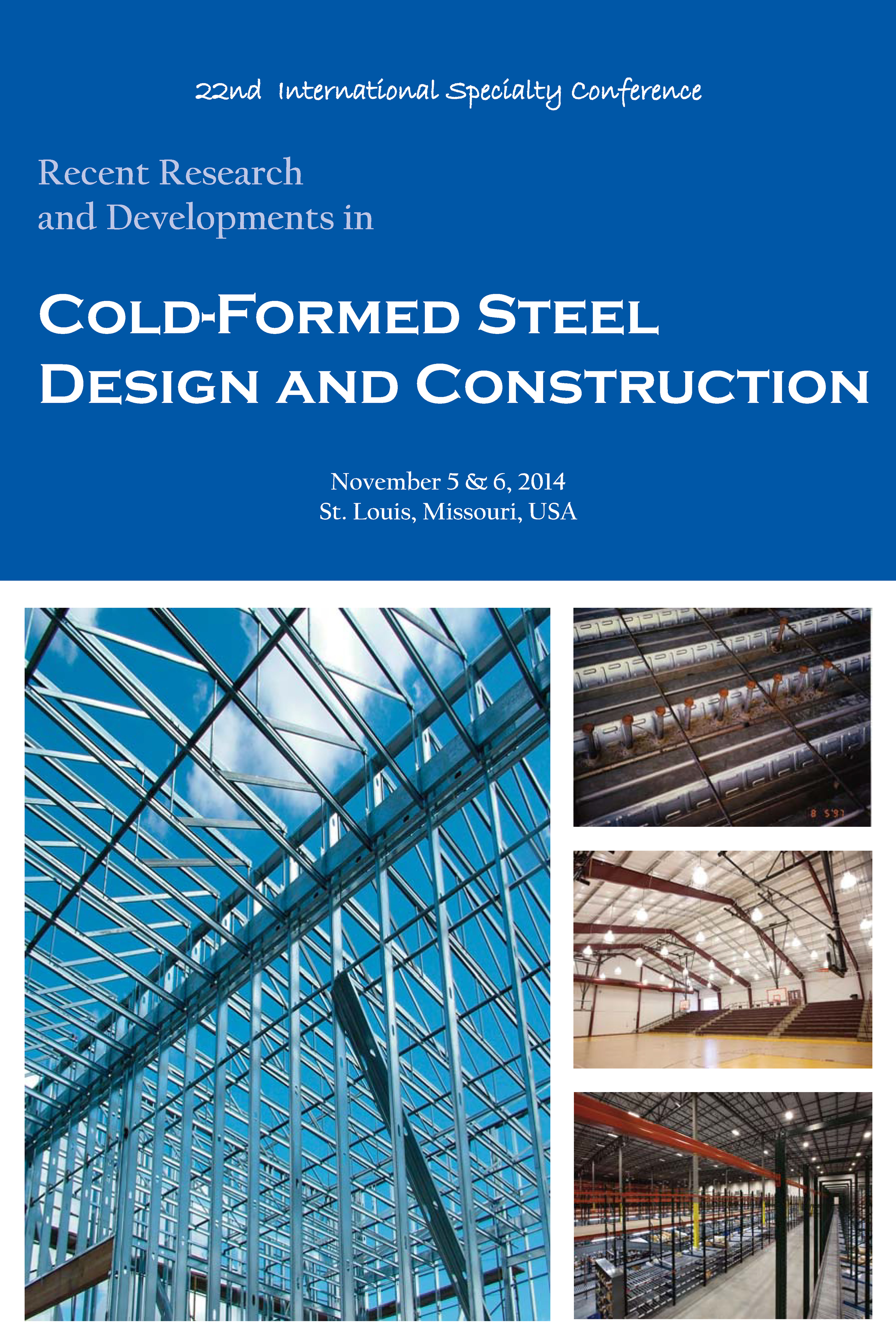Session Dates
05 Nov 2014
Abstract
This paper presents a Genetic Algorithm optimisation method with manufacturing constraints for shape optimisation of cold-formed steel (CFS) profiles. Previous studies on unconstrained shape optimization of CFS crosssections, where the sole aim was to optimise the weight-to-capacity ratio of the profiles, yielded cross-sections that cannot be manufactured. Current coldforming processes, such as roll-forming and brake-pressing, have limited ability to form continuously curved surfaces without discrete bends. This paper defines simple manufacturing rules and introduces them into the evolutionary algorithm. Augmented Lagrangian constraint-handling technique, with equality and inequality constrained violations, is used to avoid ill-conditioned problems. The ability and accuracy of the algorithm to handle the defined manufacturing constraints are verified by implementing it to optimise the section capacity of bisymmetric closed thin-walled profiles, for which an analytical solution is known.
Department(s)
Civil, Architectural and Environmental Engineering
Research Center/Lab(s)
Wei-Wen Yu Center for Cold-Formed Steel Structures
Meeting Name
22nd International Specialty Conference on Cold-Formed Steel Structures
Publisher
Missouri University of Science and Technology
Document Version
Final Version
Rights
© 2014 Missouri University of Science and Technology, All rights reserved.
Document Type
Article - Conference proceedings
File Type
text
Language
English
Recommended Citation
Wang, Bin; Gilbert, Benoit P.; Molinier, Adrien M.; Guan, Hong; and Teh, Lip H., "Shape Optimisation of Cold-Formed Steel Profiles with Manufacturing Constraints - Part I: Algorithm" (2014). CCFSS Proceedings of International Specialty Conference on Cold-Formed Steel Structures (1971 - 2018). 2.
https://scholarsmine.mst.edu/isccss/22iccfss/session01/2
Shape Optimisation of Cold-Formed Steel Profiles with Manufacturing Constraints - Part I: Algorithm
This paper presents a Genetic Algorithm optimisation method with manufacturing constraints for shape optimisation of cold-formed steel (CFS) profiles. Previous studies on unconstrained shape optimization of CFS crosssections, where the sole aim was to optimise the weight-to-capacity ratio of the profiles, yielded cross-sections that cannot be manufactured. Current coldforming processes, such as roll-forming and brake-pressing, have limited ability to form continuously curved surfaces without discrete bends. This paper defines simple manufacturing rules and introduces them into the evolutionary algorithm. Augmented Lagrangian constraint-handling technique, with equality and inequality constrained violations, is used to avoid ill-conditioned problems. The ability and accuracy of the algorithm to handle the defined manufacturing constraints are verified by implementing it to optimise the section capacity of bisymmetric closed thin-walled profiles, for which an analytical solution is known.



